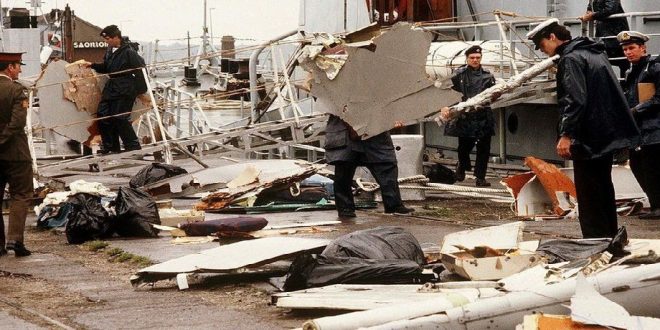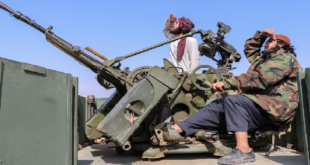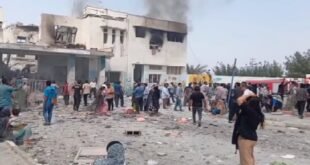30-09-2023
Bureau Report + Agencies
NEW DELHI/ OTTAWA: The deadly bombing of an Air India flight in 1985 is back in the news after relations between India and Canada hit a new low.
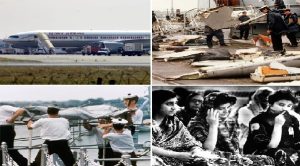 Last week, Canadian Prime Minister Justin Trudeau said his country was investigating “credible allegations” that could link the Indian government to the murder of a Sikh separatist leader in British Columbia. India has denied the allegations, calling them “absurd”.
Last week, Canadian Prime Minister Justin Trudeau said his country was investigating “credible allegations” that could link the Indian government to the murder of a Sikh separatist leader in British Columbia. India has denied the allegations, calling them “absurd”.
Since then, several commentators in India have brought up the 1985 attack also known as the “Kanishka bombing” because the Boeing 747 was named after the Emperor Kanishka which also strained Delhi-Ottawa ties.
On 23 June 1985, an Air India flight travelling from Canada to India via London, exploded off the Irish coast, killing all 329 people on board. The cause was a bomb in a suitcase that was transferred to the flight even though the ticket holder had not boarded. The victims included 268 Canadian citizens, mostly of Indian origin, and 24 Indians. Only 131 bodies were retrieved from the sea.
While the flight was still in the air, another explosion at Tokyo’s Narita airport killed two Japanese baggage handlers. Investigators later said that this bomb was linked to the attack on Flight 182 and intended for another Air India flight to Bangkok but it exploded prematurely.
Canadian investigators have alleged that the bombings were planned by Sikh separatists who wanted to take revenge for the Indian army’s deadly 1984 storming of the Golden Temple in Punjab state.
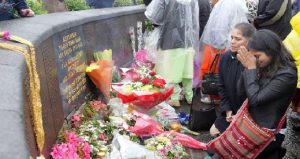 A few months after the attack, the Royal Canadian Mounted Police (RCMP) arrested Talwinder Singh Parmar, the leader of an extremist group called Babbar Khalsa that is now banned in Canada and India and Inderjit Singh Reyat, an electrician, on various weapons, explosives and conspiracy charges but the case against Parmar whom India had unsuccessfully tried to get extradited from Canada in the early 1980s – was flimsy and he was released. Investigators now believe that Parmar who was killed by police in India in 1992 was the mastermind behind the attack.
A few months after the attack, the Royal Canadian Mounted Police (RCMP) arrested Talwinder Singh Parmar, the leader of an extremist group called Babbar Khalsa that is now banned in Canada and India and Inderjit Singh Reyat, an electrician, on various weapons, explosives and conspiracy charges but the case against Parmar whom India had unsuccessfully tried to get extradited from Canada in the early 1980s – was flimsy and he was released. Investigators now believe that Parmar who was killed by police in India in 1992 was the mastermind behind the attack.
In 2000, police arrested Ripudaman Singh Malik, a wealthy Vancouver businessman, and Ajaib Singh Bagri, a mill worker from British Columbia, on a number of charges including mass murder and conspiracy but in 2005, after an expensive trial that lasted almost two years, both men were acquitted of all charges, the judge said there were factual errors and credibility issues with key witnesses who testified against the men. The media reported at the time that the verdict was greeted with shock, with victims’ relatives sobbing in the courtroom.
 Pressmediaofindia
Pressmediaofindia
